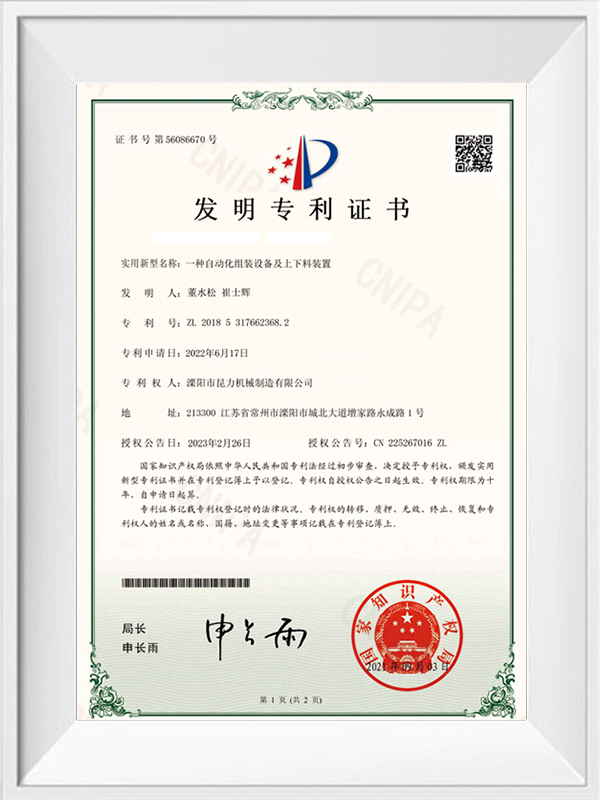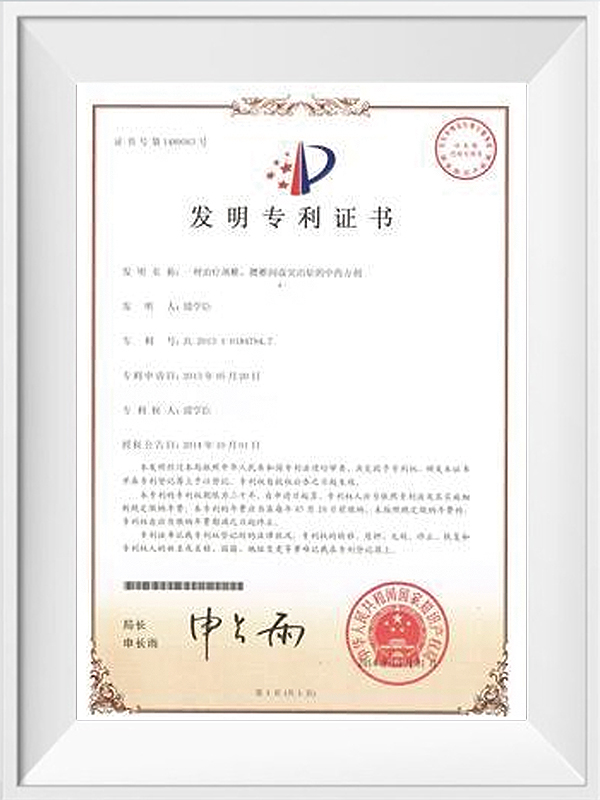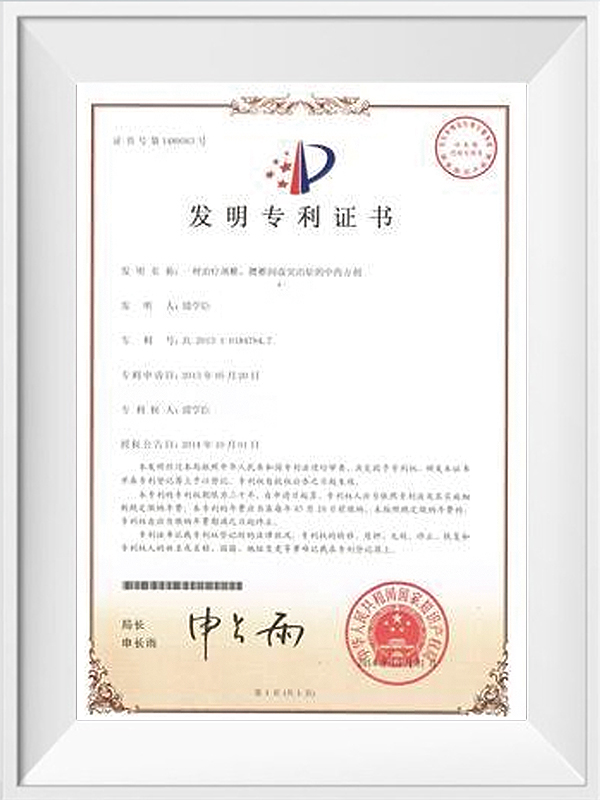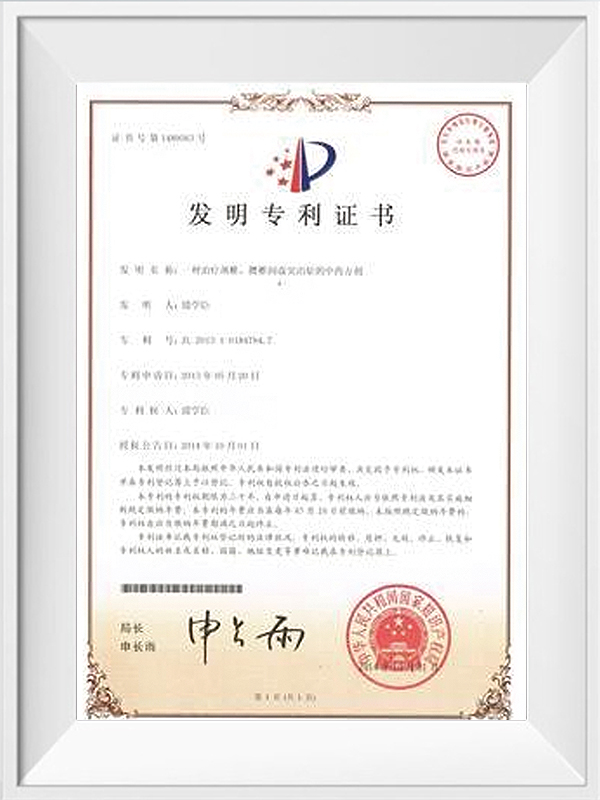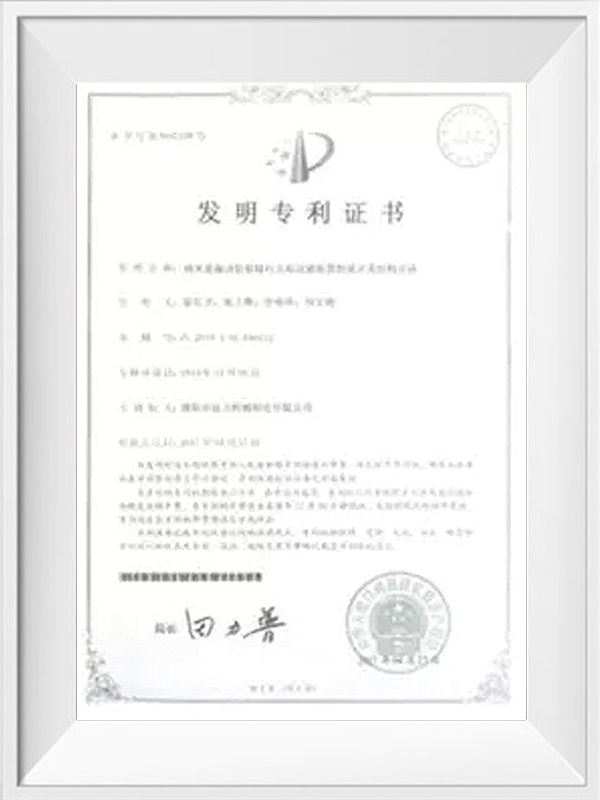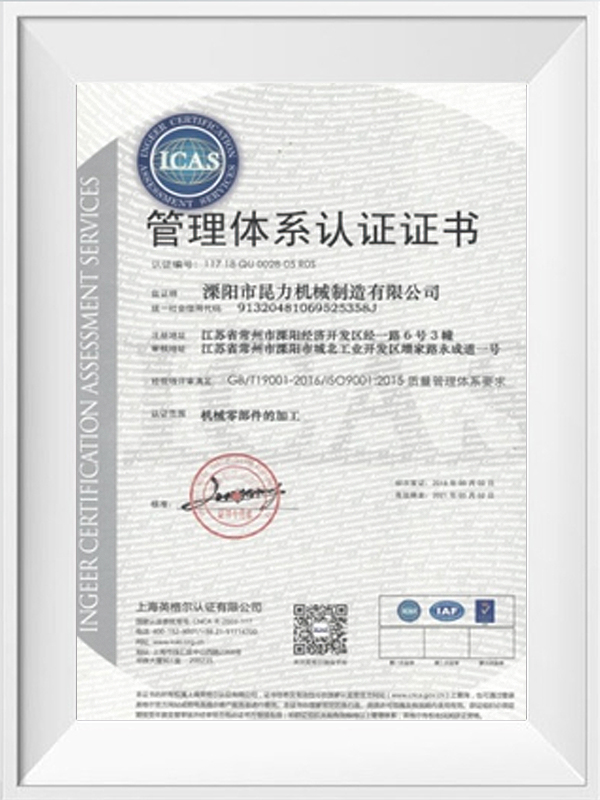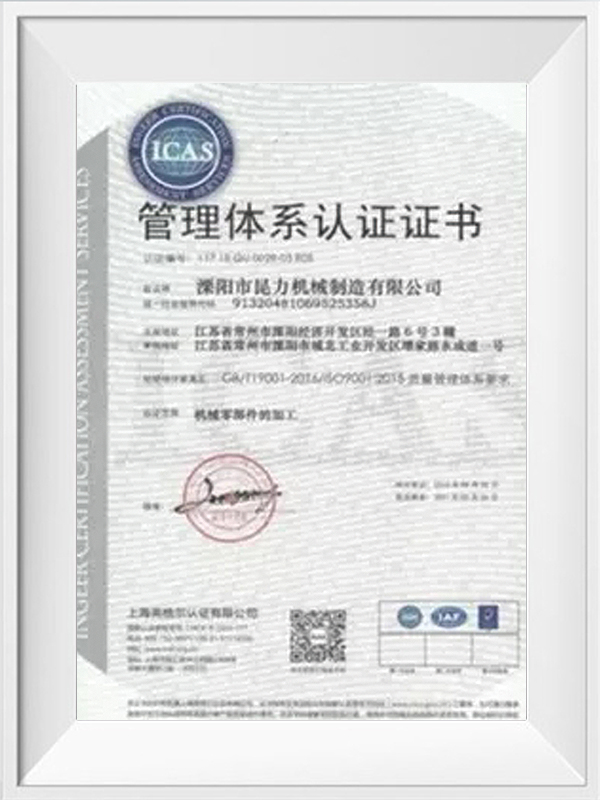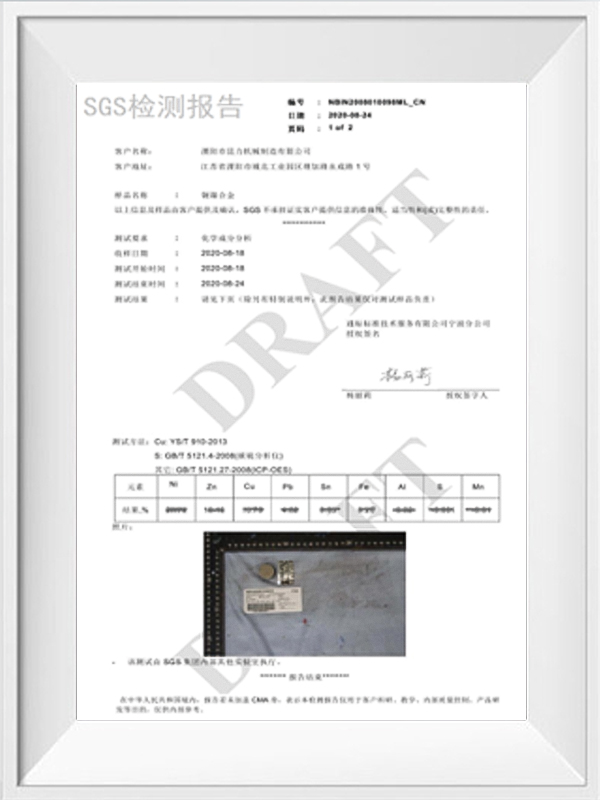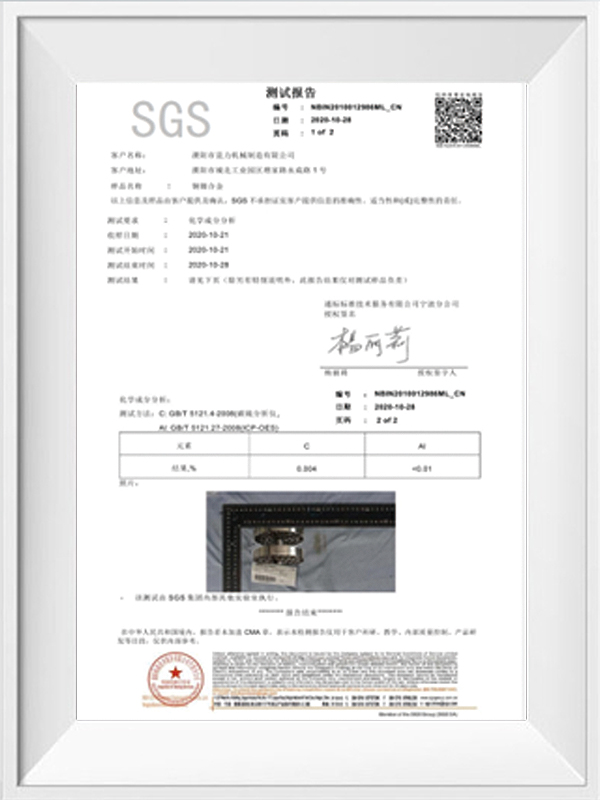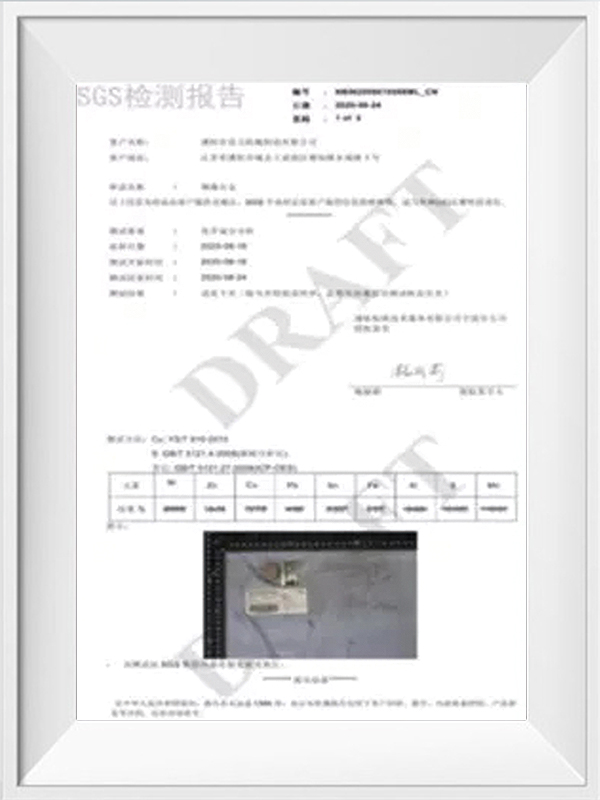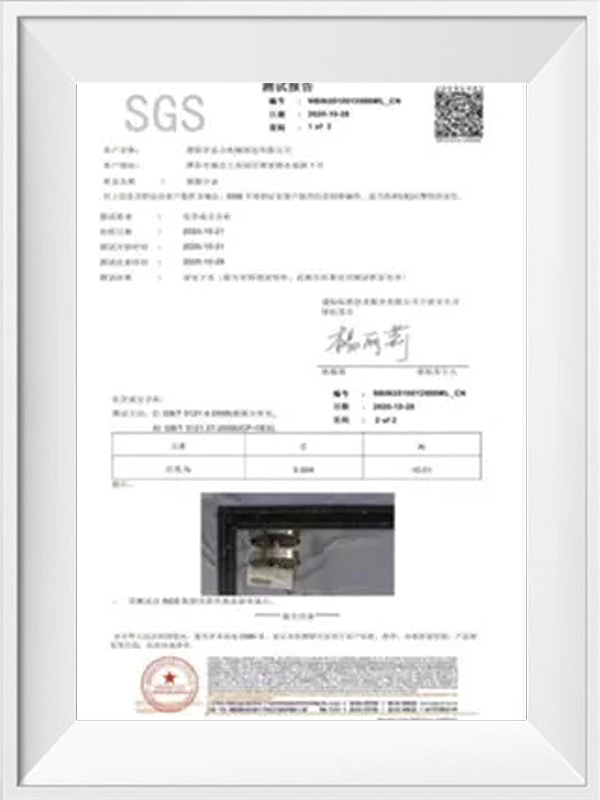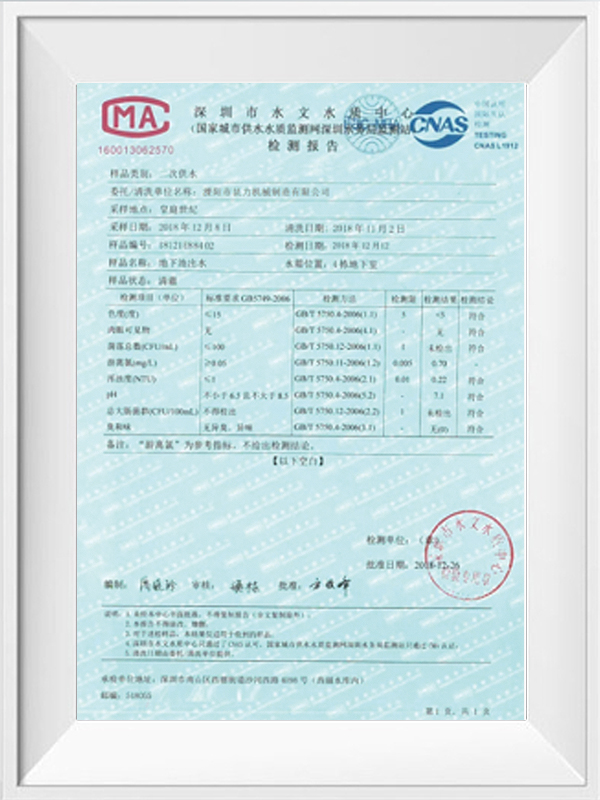Amid the industrialization of third-generation semiconductor materials, silicon carbide (SiC) has be...
READ MOREProduct Series
- - Standard Automated Production Line
-
- Non-Standard Automated Production Line
- - Non-Standard Automated Production Line For Industrial Electrical Appliance Industry
- - Energy Storage Automated Production Line
- - Non-Standard Automated Production Lines For The Automotive Industry
- - Non-Standard Automated Production Line For Food And Beverage Industry
- - Non-Standard Automation In Chemical Industry
- - Non-Standard Automated Production Line For Home Appliance Industry
- - Automated Production Line For Hardware And Building Materials Industry
- - Non-Standard Automated Production Line For New Energy Industry
- - Non-Standard Automated Production Lines For The Consumer Electronics Industry
Custom Non-Standard Automated Production Line For New Energy Industry
Who are we?
Established in 2013, Liyang Kunli Machinery Manufacturing Co., Ltd is a scientific and technological enterprise specializing in the R&D, transformation and production of industrial automation equipment and non-standard automation equipment. We are China Non-Standard Automated Production Line For New Energy Industry Suppliers and Non-Standard Automated Production Line For New Energy Industry Manufacturers. Equipped with dozens sets of precision machining equipment for machining, cutting and welding,etc, the company now has more than 20 design engineers, 5 software and PLC electrical engineers, 3 inspectors, and 16 key CNC technicians. Kuli company has been engaging in the innovation of automatization technology and solution to automatization, so as to promote the progress of the technology of smart factories, non-standard equipment and automated assembly lines. The company has made many technological breakthroughs and achieved success in the projects of high precision equipment, unmanned smart factories, etc, in the course of many years’research and development, and therefore a good range of high-tech, high-precision, cutting-edge products have been designed, developed and produced. The scope of R&D includes the following area: 1. Unmanned smart factories, flexible automation lines, non-standard auto equipment; the design and production of non-standard automatization of assembly lines, intelligent storage, stacking, palletizing and transportation, etc. 2. Stirring, coating, coiling, soft pack sealing, Lithium battery cleaning and assembling in the industry of new energy lithium battery and energy storage; the production process of automatization of energy storage assembly lines, etc. 3. The design of inspection robots(inspection of safe production, fire and water prevention, malfunction of equipment, etc), unmanned automated patrol scheme and relevant turn-key projects. 4. The integrated design of automatization of CCD vision . 5. The design of automatization scheme of AGV handling and integration projects. 6. The design of non-standard customized equipment, special equipment and automation production lines and relevant turn-key projects. Kunli company has been devoting to the R&D and innovation of high precision, cutting-edge equipment for more than a decade, and has accumulated rich technological experience in R&D and manufacture.
-

Advanced Plant Ared
0㎡+ -

Founded In
0 -

Designers
0+ -

Technical Backbone
0+
-
-
Accurately measuring an object's tilt is crucial in many industries, and inclinometers shoulder this...
READ MORE -
The efficient transmission and distribution of electricity is crucial in the vast networks of modern...
READ MORE -
Amidst accelerating globalization and the increasing frequency of various activities, market demand ...
READ MORE -
Grinding plays a crucial role in numerous modern industrial production processes. This is particular...
READ MORE
In modular design, how to determine the module division standard of non-standard automated production lines in the new energy industry?
In modular design, determining the module division standard of non-standard automated production lines in the new energy industry is a crucial step. The following are some recommended methods for determining the module division standard:
Functional requirement analysis:
First, deeply analyze the production process of new energy products and identify the key functions and operations of each production stage.
According to these functional requirements, preliminarily divide modules with independent functions and relatively independent.
Process flow optimization:
When considering module division, the process flow of the production line should be optimized as much as possible to reduce unnecessary steps and waiting time.
The division of modules should be conducive to the smooth progress of the process flow and improve production efficiency.
Equipment compatibility:
Consider the compatibility of equipment within the module to ensure that equipment between different modules can be seamlessly connected to achieve rapid replacement and upgrading.
When selecting equipment, equipment with standardized interfaces and communication protocols should be given priority.
Maintenance and upgrade:
The division of modules should consider the convenience of maintenance and upgrade. There should be clear boundaries between modules to facilitate separate maintenance and upgrade.
Preferably select equipment with modular design and easy maintenance and upgrade.
Scalability: Considering the rapid development of technology in the new energy industry and changes in market demand, the division of modules should have a certain degree of scalability. Modules should be able to be easily increased or decreased to meet the production needs of different scales and types. Safety and environmental protection: When dividing modules, the safety and environmental protection requirements of the production line must also be considered. Ensure that each module complies with relevant standards and regulations during operation. Determining the module division standards for non-standard automated production lines in the new energy industry requires comprehensive consideration of functional requirements, process flow, equipment compatibility, maintenance and upgrades, scalability, safety and environmental protection. Through reasonable module division, the flexibility, efficiency and reliability of the production line can be improved to meet the rapid development needs of the new energy industry.
What key role does the intelligent control system play in the non-standard automated production lines in the new energy industry?
Intelligent control systems play a vital role in non-standard automated production lines in the new energy industry, mainly reflected in the following aspects:
Increase productivity:
The intelligent control system can automatically control and adjust the production process based on preset control strategies and algorithms. This kind of automation and intelligent management enables the production line to run continuously and efficiently, thereby significantly improving production efficiency.
reduce manufacturing cost:
By monitoring the operating status of the production line in real time, the intelligent control system can automatically adjust production parameters and production strategies according to actual conditions, reducing energy and raw material consumption. In addition, reducing errors and losses caused by human factors can also further reduce production costs.
Improve product quality:
The intelligent control system can accurately control and monitor all aspects of the production process to ensure product consistency and stability. It can detect and correct deviations in the production process in a timely manner, thereby avoiding product quality problems.
Enhanced security:
The intelligent control system can monitor the operating status of the production line in real time. Once an abnormality is discovered, it can immediately issue an alarm and take corresponding measures to avoid accidents and accidents. This real-time monitoring and early warning mechanism can greatly improve the safety of the production line.
Optimize production process:
The intelligent control system can optimize the production process and reduce bottlenecks and waste in the production process through data analysis and prediction. This optimization not only improves production efficiency, but also reduces production costs and enhances the competitiveness of enterprises.
Intelligent control systems play a key role in improving production efficiency, reducing production costs, improving product quality, enhancing safety and optimizing production processes in non-standard automated production lines in the new energy industry. It is an important guarantee for realizing efficient, stable and safe operation of non-standard automated production lines in the new energy industry.

 English
English русский
русский عربى
عربى



